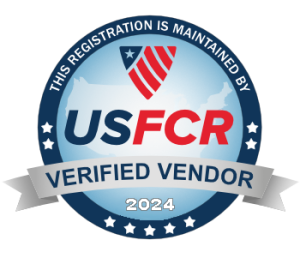Below are some of our most frequently asked questions.
If you still need help feel free to contact us!
What is ASTM F964-13?
ASTM F964-13 is the “end all, beat all” testing specification for the Vinyl fence. This specification aims to establish a recognized standard of quality for exterior Vinyl profiles for use in assembling agricultural, commercial, and residential fencing and railing.
Our Vinyl fences are manufactured to meet cell Class 1-32333-3 as defined in Specification D4216.
How long can Vinyl Fences last?
Vinyl Fences Can Last More Than 15 Years: If properly cared for, your vinyl fence can last up to twenty years. Most vinyl fences come with a 15 to 20 year warranty because the product is always built to last. Vinyl is made from a plastic material known as ethylene, and chlorine. The combination of these two elements creates Polyvinyl Chloride (PVC) resin which is highly durable.
Are Vinyl Fences environmentally friendly?
Vinyl Fencing is Environmentally Sound (Despite Being Man Made!): Most people associate manmade materials with environmental harm, but this is not true of Vinyl. Unlike most plastics, vinyl comes from natural sources and uses little to no fossil fuels during production. This means that there is a small amount of carbon dioxide released as vinyl is being made. Ethylene is found in crude oil and natural gas, making it a more natural type of plastic, and chlorine is found in everyday salt. In addition to this, PVC is a recyclable material.
Are Vinyl Fences impervious to pests?
Vinyl Fencing is Impervious to Pests: As vinyl is so durable, it can stand up to regular pests that can be found in your yard. Unlike a wooden fence, insects cannot chew, burrow, or scratch through the tough plastic of vinyl fencing. This useful feature is part of what makes vinyl fencing last so long.
Are Vinyl Fences good in any climate?
Vinyl Fencing is A Great Choice for Any Climate: Wooden and iron fences cannot last in just any climate. If you’re too near the ocean or in a spot that often rains, wooden fences can rot and become warped. Iron fences, on the other hand, can rust up and become nearly irreparable. If you live in a dry area, the harsh sun and dry winds can cause wooden fences to become dry and discolored,
and iron fences to become scratched and blanched. Vinyl fences, however, have none of these problems. Both dry and moist weather does not ruin or even affect vinyl fencing in the slightest. The strong plastic makes it waterproof and allows dust to be easily cleaned off without leaving stains or scratches.
How do I clean Vinyl Fences?
There are Three Effective Ways to Clean Vinyl Fencing: Vinyl fencing is incredibly easy to clean. For most cases, warm water, a quality wash cloth, and some dish soap or fence cleaner is enough to get a dusty, dirty vinyl fence looking new again. For tougher stains, adding some bleach, mineral spirits, or tar remover to your routine is more than enough to get your fence looking great. Finally, for minor cleaning jobs that tackle dull, spotty, or lightly stained fences, some fence cleaner, a cloth or towel, and a good rinse are all you need. What could be easier?
Is it easy to maintain Vinyl Fences?
Vinyl Fences Are Easy to Maintain: Aside from the occasional cleaning, vinyl fences can totally be left alone. Maintenance couldn’t be any easier than that! They don’t need to be checked on regularly, they require minimal cleaning as mentioned, and will look great for months or even years when left completely alone.
When was Vinyl material invented?
Vinyl Material was First Invented in 1913: Vinyl material was first invented in 1913 when German inventor Friedrich Heinrich August Klatte took out a patent on PVC. However, PVC gained traction in the
U.S. after BFGoodrich hired Waldo Semon to develop a synthetic material to replace natural rubber. From here on scientists began looking to further develop the versatile material. Since its conception, vinyl has risen to be the second largest manufactured solid plastic resin in the world!
How many Vinyl Fence types are there?
The two types of vinyl fences are virgin vinyl and recycled vinyl. Virgin vinyl is the most common type of vinyl as it is the most widely developed and used. It is made from PVC, polypropylene, nylon, and polythene and is extruded from virgin resin. Recycled vinyl is made from recycled plastics and is usually of a lower quality than virgin vinyl.
Can Vinyl Fences self-exstinguish?
Vinyl Fences Self-Extinguish: Did you know that vinyl fences can burn? Most vinyl fences have a flash point of 900 degrees Fahrenheit-and they don‘t easily ignite. If you were to hold a flame to your vinyl fence, it will burn. However, once you take the flame away, the fence will self-extinguish itself. This is great news for summertime barbecues, backyard fireworks shows, and other fire related mishaps! If exposed to extreme heat, vinyl fencing will not continue to burn, but melt, lowering risk of stray embers and prolonged fire.
Are Vinyl Fences non-toxic?
Vinyl Fencing is Non-Toxic: Unlike many plastic materials, vinyl fencing is not treated with harsh and hazardous chemicals. As vinyl is recyclable, it is spared from being treated or coated with such chemicals as to protect the surrounding environment. What’s more, since vinyl fencing is made from natural materials, harsh chemicals are not needed for protection, durability, or other reasons.
What type of fence is best suited for my needs?
The type of fence you choose depends on your needs. For example, a solid fence would be a good choice if you want privacy. A chain-link fence might be a better option if you want to keep pets in the yard. A fence installation company can help you choose the right fence.
How long will it take to install my fence?
The time it takes to install a fence varies depending on the size and complexity of the project. A fence installation company can estimate how long it will take to complete the installation.
What is the cost of fence installation?
The cost of fence installation varies depending on the type of fence you choose, the size of your yard, and the project’s complexity. A fence installation company can provide you with an estimate of the cost of the installation.
Do you offer a warranty on your fence installation?
Many fence installation companies offer a warranty on their work. Knowing that your fence installation is protected can give you peace of mind.
What is the maintenance required for my fence?
Different types of fences require different levels of maintenance. A fence installation company can advise you on maintaining your fence and keeping it looking great.
Are there any permits required for fence installation?
You may need a permit to install a fence, depending on where you live. A fence installation company can help you navigate the permit process.
What is the process for fence installation?
The process for fence installation typically involves several steps, including measuring your yard, choosing the right fence, preparing the site, and installing the fence. A fence installation company should be able to walk you through the process and answer any questions.





